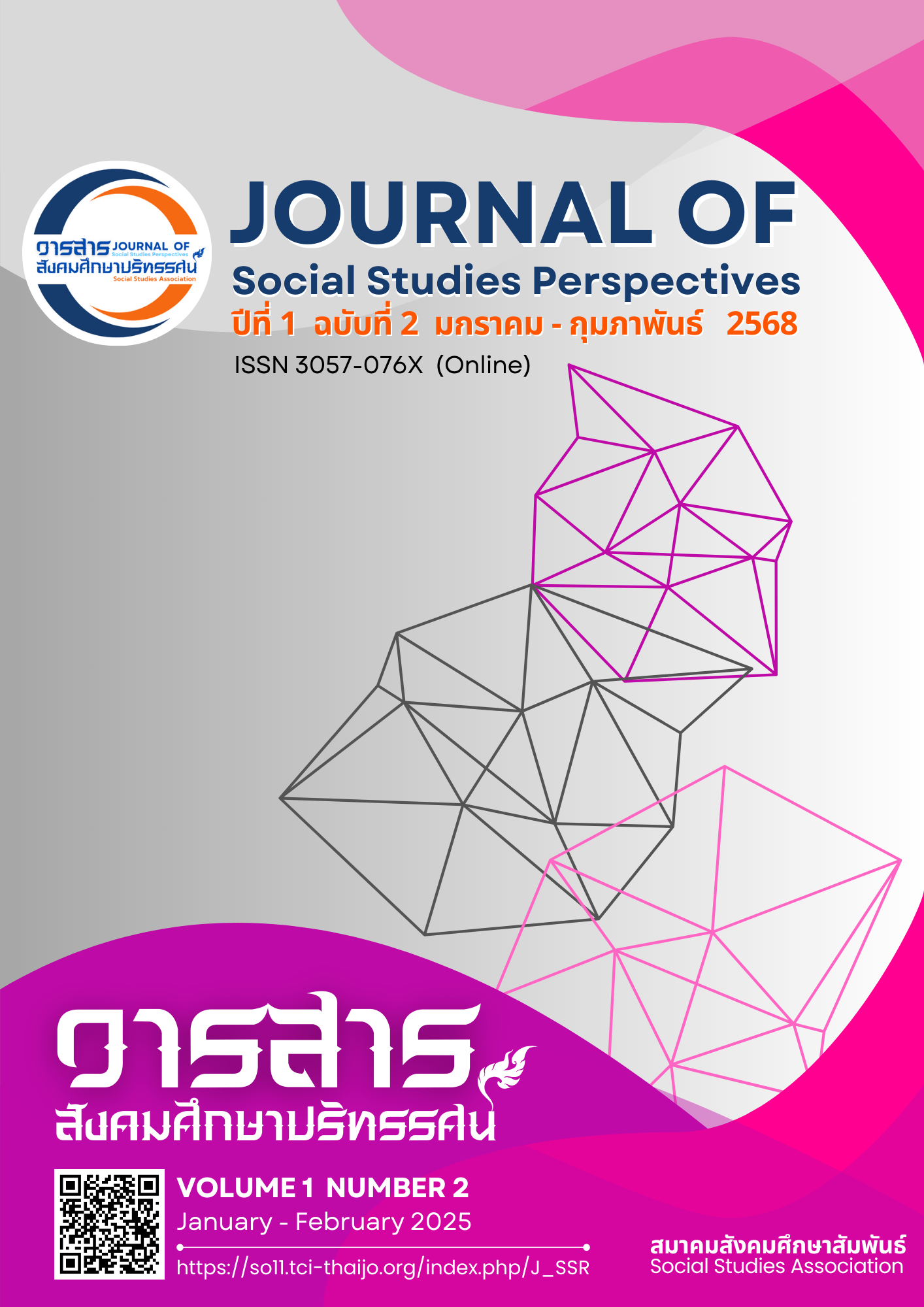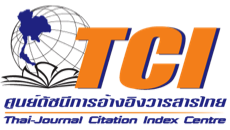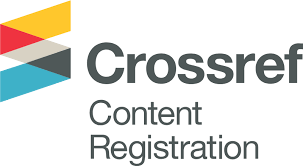EFFECTS OF RESEARCH-BASED LEARNING (RBL) ON ACADEMIC ACHIVEMENT SCIENCE SUBJECTS TO DEVELOP LIFE SKILLS OF STUDENTS AT THE VOCATIONAL CERTIFICATE LEVEL (VOCATIONAL CERTIFICATE 1) ELECTRICAL TECHNICIAN BRANCH PHITSANULOK TECHNICAL COLLEGE
DOI:
https://doi.org/10.64186/jsp1137Keywords:
Academic achievement, Research-based, Life skillsAbstract
This research aims to 1) develop a science learning plan to develop life skills of vocational certificate students (Vocational Certificate 1) in Electrical Engineering. 2) compare the academic achievement of students between groups using research-based learning management and regular learning. 3) study the satisfaction of students with research-based learning management. This is a quantitative research. The sample group is 40 vocational certificate students (Vocational Certificate 1) in Electrical Engineering, Phitsanulok Technical College. The selection method is simple random sampling, using learning groups as the sampling unit. There are 2 types of research instruments:
1) test, 2) questionnaire. Data analysis is done using mean
( ), standard deviation (S.D.), and t-test Independent. The results of the research are as follows
1 The efficiency of the research-based learning plan for Science to develop life skills is 86.18/83.32 overall.
- The academic achievement of students in the subject Science for Life Skills Development, Code 20000-1301, who studied using a research-based teaching plan after studying was significantly higher than before studying, at a statistical level of 0.05.
- Students' satisfaction with the research-based learning management, Science for Life Skills Development, Code 20000-1301, overall was at a high level (
= 4.38, S.D. = 0.46).
Knowledge/discovery from this research
- Before teaching using research as a base, teachers must study and analyze the curriculum, subject objectives, subject competencies, and subject descriptions to be taught for understanding.
- Teachers should study media and innovations in teaching using research as a base to understand the weaknesses and strengths of research in order to provide good suggestions to students.
References
Arifin, Z., Hanafi, I., & Mukti, A. (2022). Research-based learning strategies in vocational education for 21st-century skills development. International Journal of Educational Learning Systems, 10(3), 45-60.
Dahalan, F., Alias, N., & Shaharom, M. S. N. (2024). Gamification and game-based learning for vocational education and training: A systematic literature review. Education and Information Technologies, 29, 1279–1317.
Dewi, R. S., & Primayana, K. H. (2022). Problem-based blended learning models in vocational education: A literature review. International Journal of Information and Education Technology, 13(12), 2011–2018.
Gao, L., Xu, D., & Li, Y. (2023). Collaborative learning and critical thinking enhancement through research-based learning. Educational Research Review, 18(4), 112-128.
Hanif, M., et al. (2021). The project-based learning management process for vocational and technical education in Thailand. Higher Education Studies, 11(2), 25–35.
Jang, S., Nguyen, D., & Wong, T. (2023). Integrating AI tools into RBL for personalized learning. AI in Education, 10(3), 157–167.
Nguyen, T. H., & Linh, D. (2023). Creativity in RBL: Evidence from STEM education. Educational Research Review, 15, 98–110.
Pascual, L., & Ortiz, M. (2021). Real-world problem-solving through RBL. Learning Environments Research, 24(4), 377–391.
Ruiz-Martín, A., González-Martín, M. C., & Morales-Bueno, P. (2024). Enhancing academic achievement through cognitive research-supported techniques in education. Cognitive Research: Principles and Implications, 9(1), 123-140.
Singh, R., et al. (2022). Research-based learning in EFL classrooms. Journal of Language Teaching, 16(7), 354–367.
Singcharoern, T. (2000). The satisfaction of Grade 7 students at Wang Klai Kangwon School And RajaprajanugrohSchool under Royal Patronage with the satellite-based distance learning method. Bangkok: Ramkhamhaeng University.
Suwattana, S. (2021). Book Title. Bangkok: Example Publisher.
Sharma, P., Mehta, A., & Roy, K. (2023). Research-based learning and its impact on academic satisfaction in health sciences. Asia-Pacific Education Researcher, 12(2), 210-225.
Zhou, H., Li, X., & Tang, Y. (2024). Decision-making models in evaluating RBL outcomes. Journal of Educational Psychology, 22(5),
–472.
Downloads
Published
How to Cite
Issue
Section
Categories
License
Copyright (c) 2025 Journal of social studies perspectives

This work is licensed under a Creative Commons Attribution-NonCommercial-NoDerivatives 4.0 International License.
The article is published under the Creative Commons Attribution-NonCommercial-NoDerivatives 4.0 International (CC BY-NC-ND 4.0) license, which allows others to share the article while giving appropriate credit to the author. It prohibits the use of the article for commercial purposes or the creation of derivative works. Any other reuse or reproduction requires permission from the journal.










